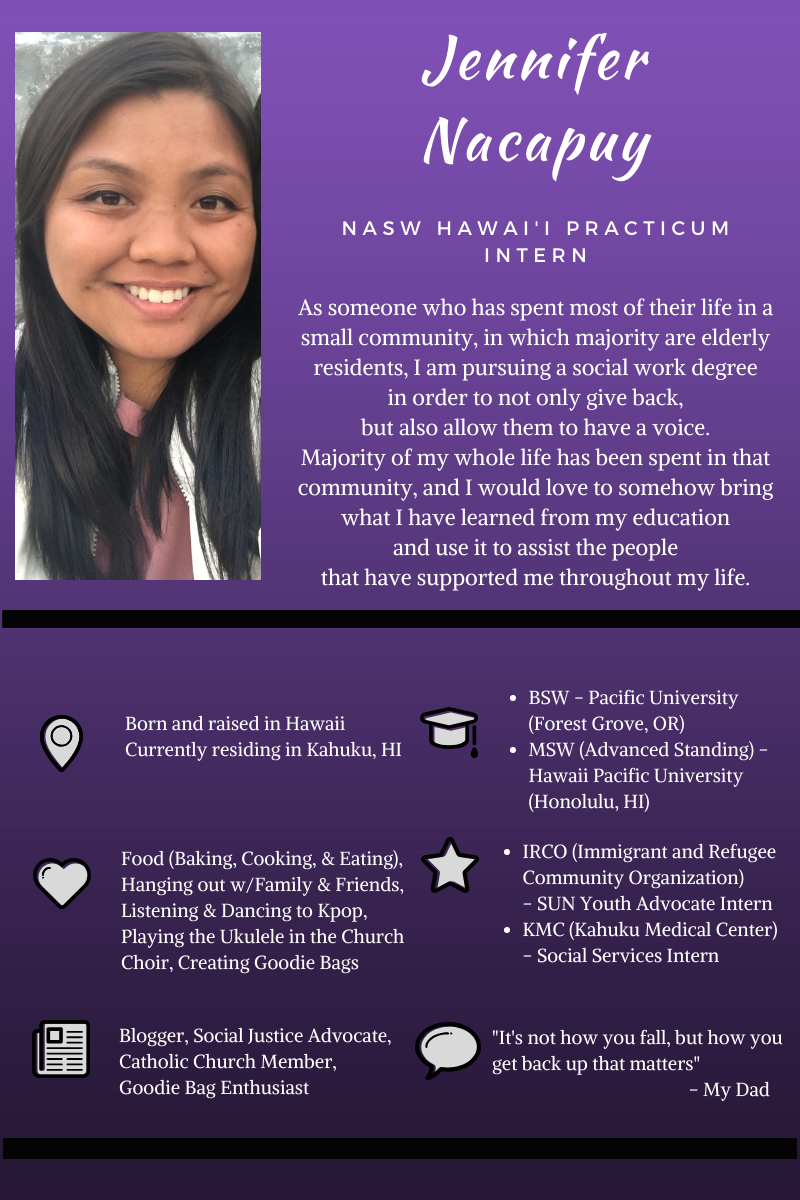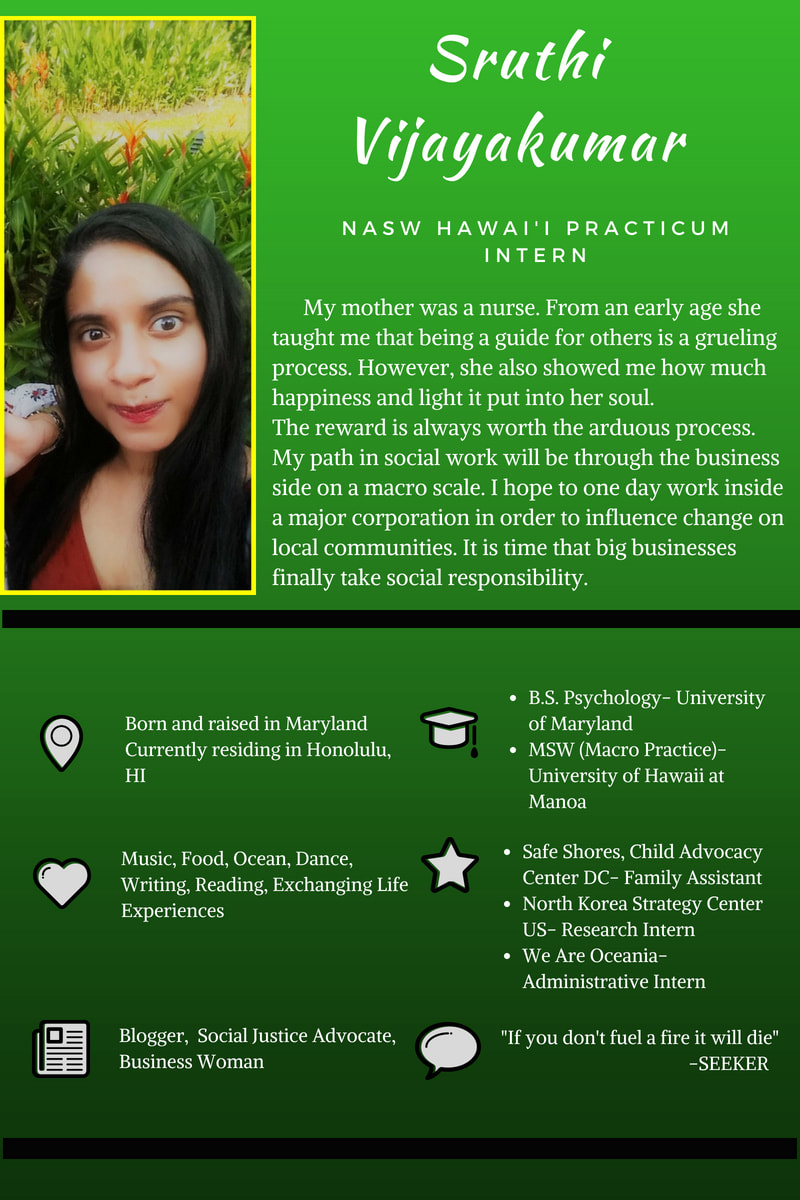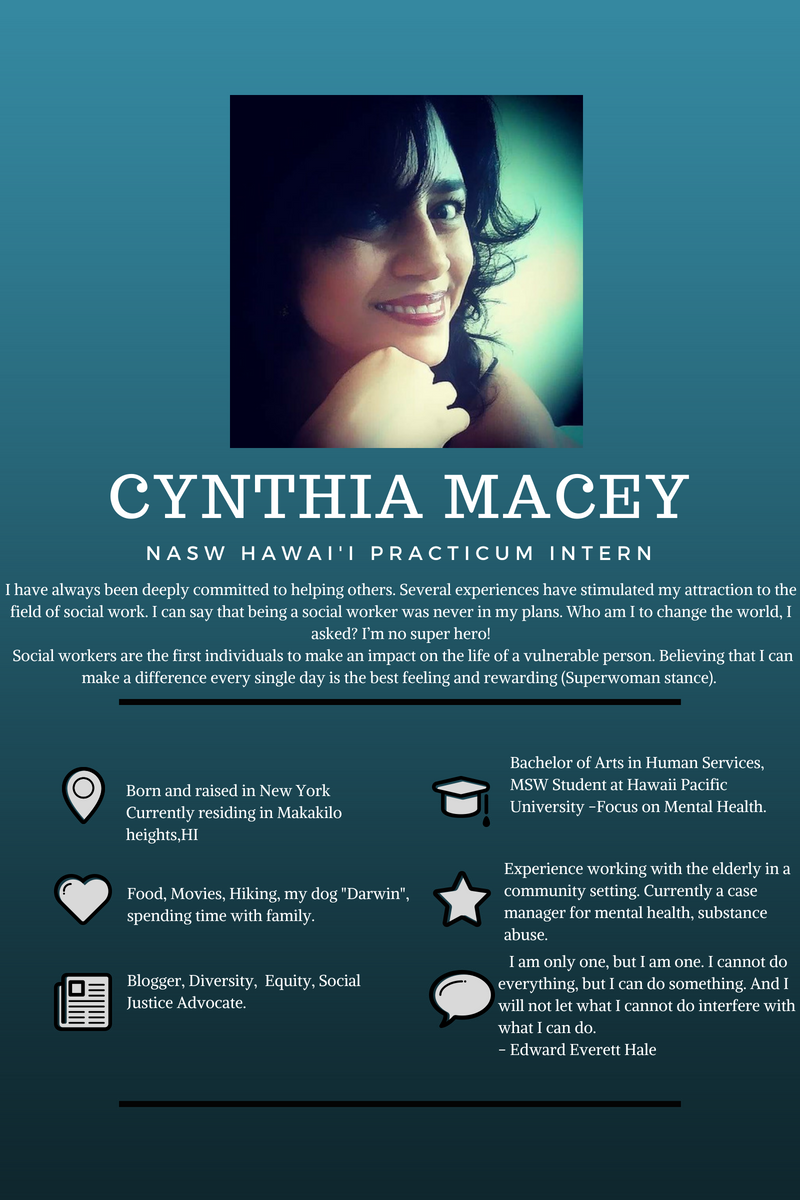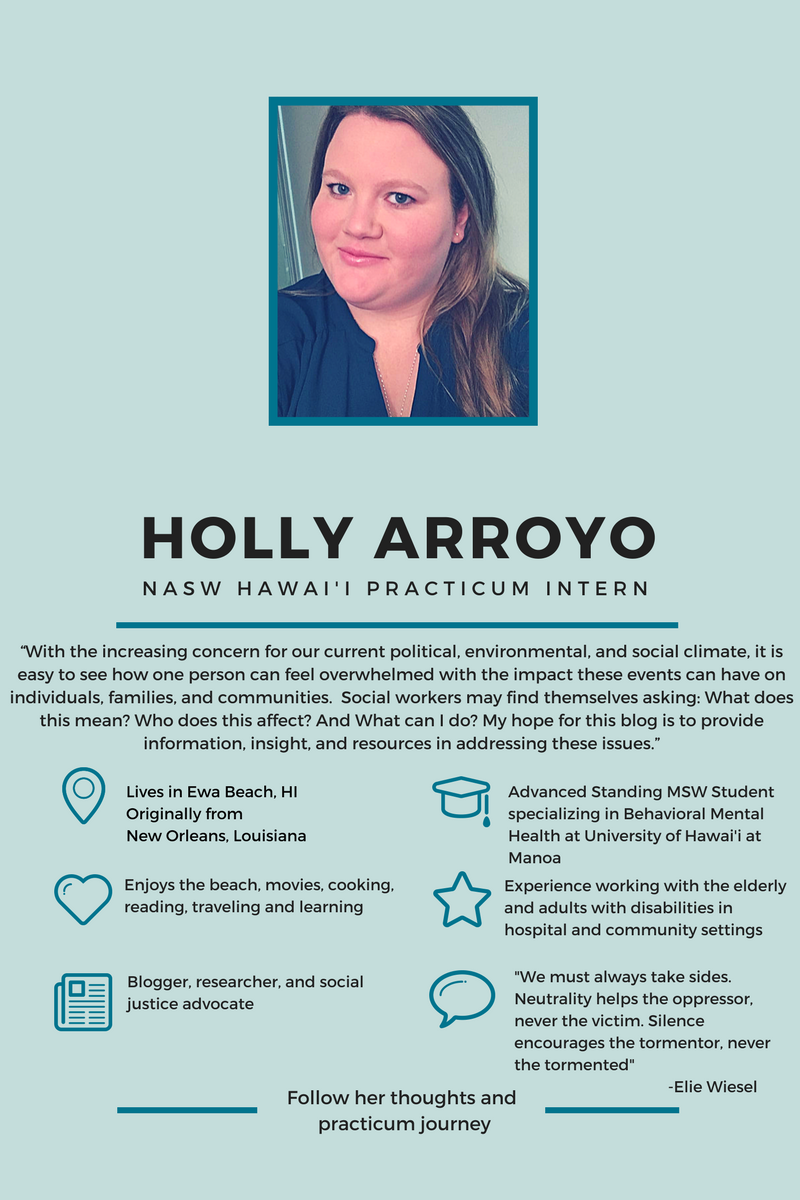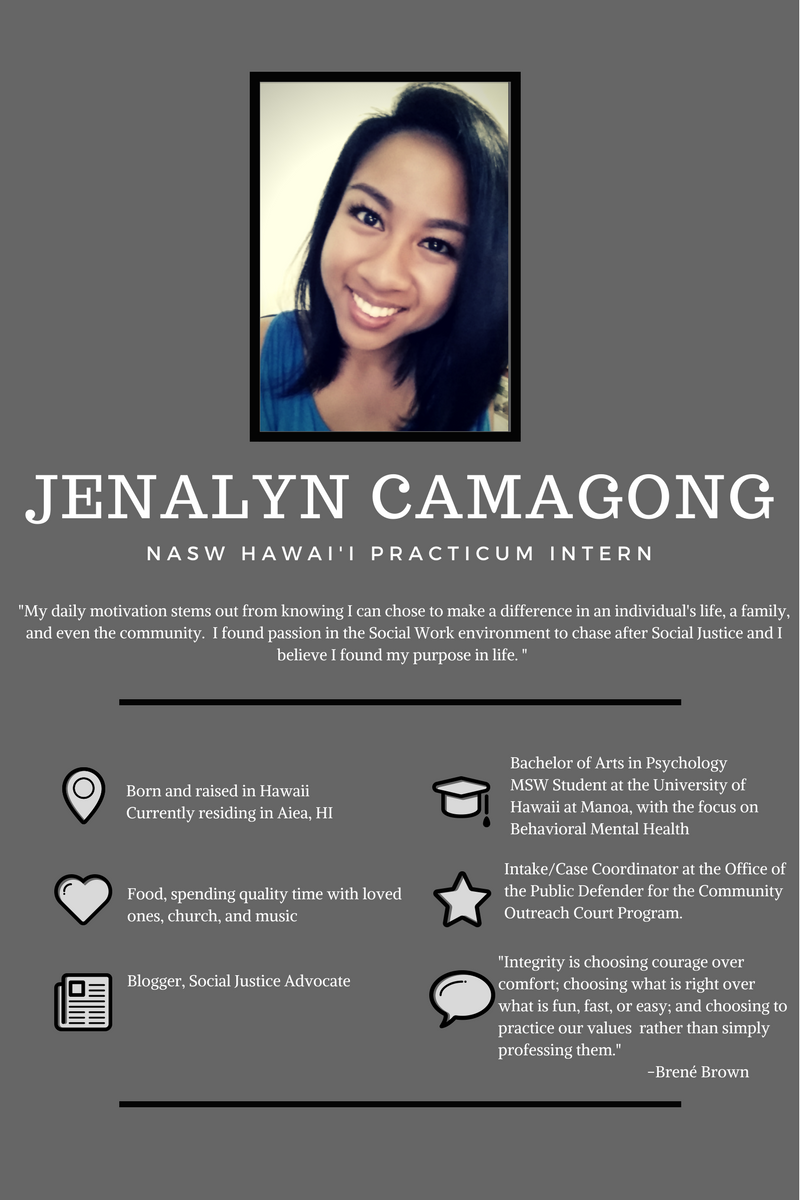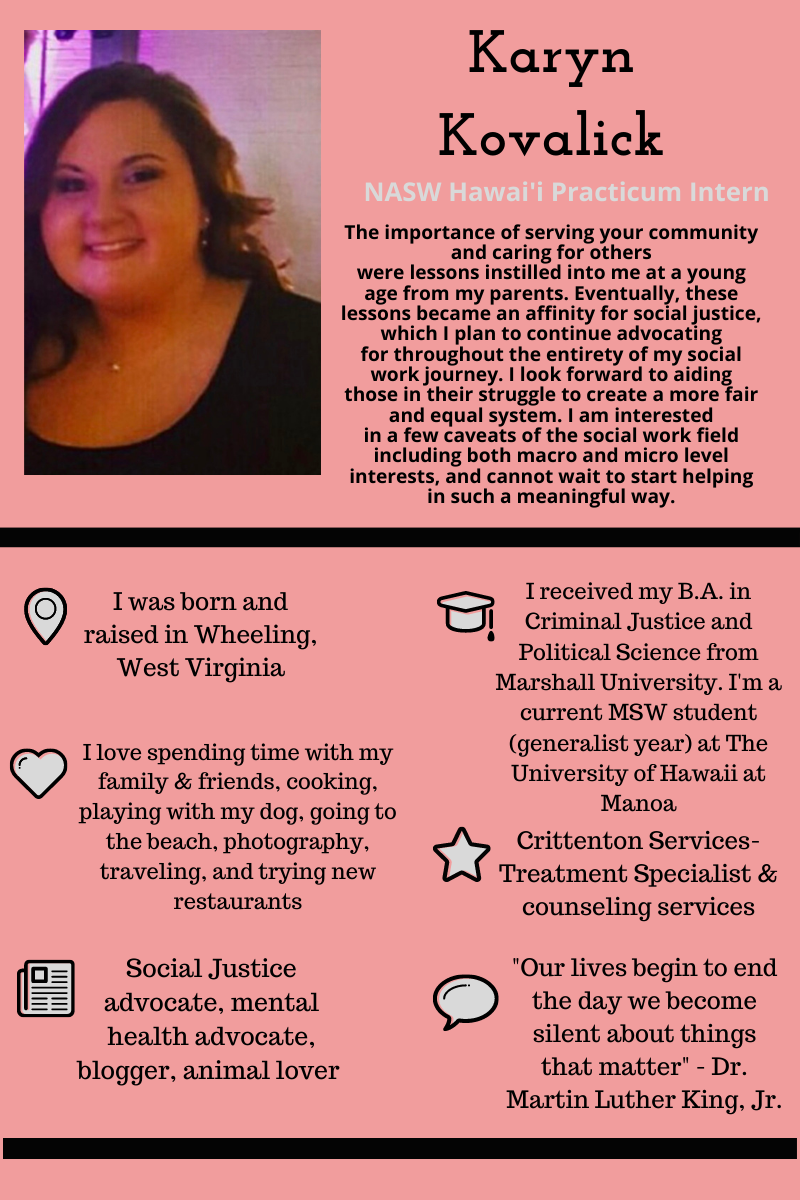|
By: Sruthi Vijayakumar
In a time period of social growth, a plethora of professionals in many fields are openly discussing burn-out and how to prevent it through self-upkeep. Self-care is heavily discussed in therapeutic fields such as psychology and social work, but generally it is simply explained as a time one sets aside for his or herself outside of a professional setting. Many of my cohort take this to imply a time of relaxation or doing nothing. A cliche stereotypical image of self-care being self-indulgence. One binges on TV shows and eats a variety of unhealthy foods to ease off stress. However, I started to slowly question what I personally need in terms of self-care when setting aside time from school, field work, exercise, and career pursuit. For me my self-care routine in my first year of my MSW was to go to Waikiki every weekend and set aside an hour or two to do nothing. Of course I would swim, but I wanted a space that required no active thought, because that is what the image of self-care created in my mind. Over time I grew frustrated because it slowly started to feel like a chore, and I no longer enjoyed it. I asked my therapist what were options for self-care because my methods were no longer sustaining that position and did not make me feel any less stressed. She told me self-care can simply be tasks I do not put active thoughts towards, but help me feel revitalized. So I stepped back and reanalyzed what I needed, and that is when I started seeing self-care as self-development. After that meeting with my therapist, I started reading more books and taking walks. Sometimes I would treat myself to tea while doing both of these things to add an air of relaxation. What I found out was that I liked doing constructive activities to fill that period of time set aside for myself. Recently, part of my self-care as self-development is applying for MBA degree programs in Korea. When I am learning the Korean language or pursuing venues to establish my future career there, regardless of the work effort it takes I feel lighter, happier, and over all joyful. I thoroughly feel valuable self-care for me is when I am physically, mentally, and professionally challenging myself even if those things seem to be the opposite of self-care. This does not mean that self-care cannot include elements of peacefulness and relaxation, but that self-care can be an all-encompassing term depending on the individual. My field instructor, the executive director of NASW HI Sonja Bigalke-Bannan, sent me an article earlier this fall on how self-care is not just indulgence but also a time for self-improvement. Finally, I had a term to describe my self-care methods. I believe for me self-development is effective, because I have a mind that is constantly alert and active. While it does require periods of rest, instances where I watch TV or am on my phone, oftentimes it feels refreshed after small activities. Again, these activities do not have to be fixed and intense like a job or school. When I go on walks I buy bubble tea to enjoy a sugary treat and brighten my mood. It can set a mellow tone and low energy level ambiance. Many ways in which the setting is structured can help produce an environment that will can help destress the individual. Self-development and growth do not need to be treated as high stress elements. I learned recently that my instructor for field work seminar, Robin Arndt the President of NASW HI, feels similarly in terms of self-care. He finds that pursuing personal development opportunities is a task he enjoys. I was surprised and appreciative that I was not only the one who felt that way. Slowly, I started to realize that self-care can have different definitions for individuals. This derives from perspective, behavior, and simply personal choice. If one wants to watch Netflix and binge eat chips because that helps them dissociate from constant thoughts of work, then they are doing what helps them. Self-care can be achieved through various methods, but it is also important to realize that self-care to many can be a time period to develop better character, professional, social, or internal growth. Self-care advocacy can start to present that part of self-care is self-development. [
1 Comment
|
Author2020 Spring Semester blog posts are written by Jennifer Nacapuy. 2018-2019 Academic Year blog posts are written by Sruthi Vijayakumar & Cynthia Macey. 2017-2018 blog posts were written by Holly Arroyo & Jenalyn Camagong CATEGORIES
All
ARCHIVES
September 2020
|

